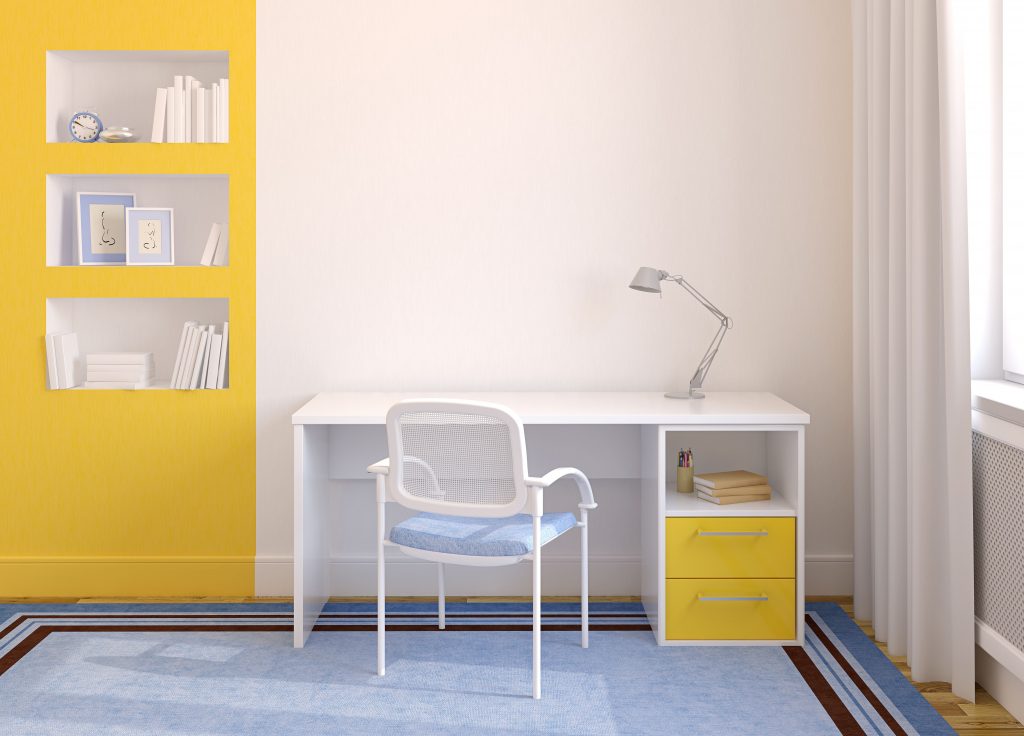One fantastic benefit of freelancing is that your office can be wherever you choose to plug in your laptop. For many freelancers, this is at home – whether that’s in a home office, at the kitchen table or even in the garden shed.
Since the launch of ICS 14 years ago, we’ve worked with thousands of freelancers who have set up their own Limited Company and started working from home. Through the relationships we’ve developed with them, we’ve learnt about the ups and downs of freelancing, including the difficulties that home-working can sometimes bring.
Here are our top five tips to help you overcome those problems and work from home efficiently and successfully.
- Create a space that is exclusively for work
Dedicating an area in your home that is solely for working will give you the structure that a traditional office setting provides. As a freelancer, you now have the freedom and flexibility to create the environment that you know you will be the most productive in. It doesn’t have to be a big space, but there should be room for a chair and a small table and it should be somewhere you feel comfortable. Ideally, it should also be somewhere that is relatively free from distractions such as family, pets and the television – this will help you get in the right mindset for work.

- Dress for success
This doesn’t necessarily mean wearing a suit and tie every day while working from your living room with only the goldfish for company, but having a shower and changing out of your pyjamas is an absolute must. It will help you transition from sleep mode to work mode and will mean you are much more likely to take your working day seriously and professionally (it will also come in handy if you ever have any spontaneous Skype meetings with clients!)

- Develop a daily work schedule
The lines between home life and work life can be easily blurred when you are a freelancer. It’s easy to get sucked into a 24/7 working mentality, and many contractors work more hours than they did when they were an employee. One way to avoid this habit is to set well-defined working hours, which means you will avoid work-related phone calls and emails that might eat into your personal time. Recognise the times of day when you are at your most productive, whether this is early in the morning or late at night, and plan your day accordingly.
- Take a Break
As an employee, you typically have a set hour for lunch, as well as morning and afternoon breaks. But many freelancers find themselves getting so caught up in projects that they will work for hours at a time without stopping for a five minute rest. Although it might seem counterintuitive to take breaks in order to be more productive, research has shown that rest periods help to refresh the mind. You might find it helpful to set an alarm to remind you to move away from the computer after a certain amount of time.

- Set realistic goals for the day and reward yourself!
Many freelancers and contractors we have spoken to are great believers in setting daily and weekly goals. These goals should be in a realistic time frame, so that you can break up big projects into smaller chunks that you can complete in 45 minutes to one hour. When you complete a goal, the reward could be simply reading your favourite blogs or watching the lunchtime news bulletin. You could even set an alarm on your phone so you know when your reward period is over and when it’s time to get back to work.
To find out more about our services and the ways we can help freelancers and contractors, get in touch with us today at 0800 195 3750, or connect with us over Twitter, Facebook, and LinkedIn.

















